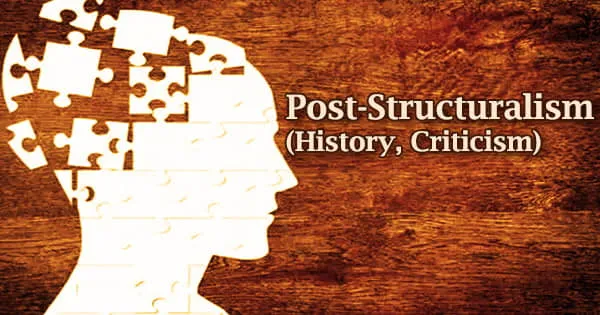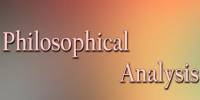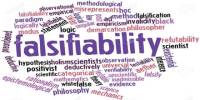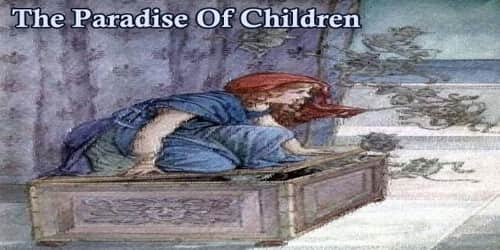The conceptual innovations in continental philosophy and critical theory that were results of twentieth-century French philosophy are referred to as post-structuralism. It’s a phrase used to describe philosophical and literary theories that both expand on and reject concepts created by structuralism, the intellectual enterprise that came before it.
The word “post” refers to the fact that several authors, including Jacques Derrida, Michel Foucault, and Julia Kristeva, were former structuralists who became extremely critical of it after departing it. Post-structuralists, in contrast to structuralism’s claims of culturally independent meaning, usually see culture as inextricably linked to meaning.
Though post-structuralists all have various critiques of structuralism, they all share the rejection of structuralism’s self-sufficiency as well as an examination of the binary oppositions that make up its frameworks. While it is impossible to define or characterize post-structuralism, it can be thought of as a collection of various reactions to structuralism.
With the torturous experiences of World Wars, the Holocaust, and the arrival of new technologies, the second half of the twentieth century saw revolutionary innovations in literary theory that were to undercut numerous of the accepted conceptions of Western literary and cultural thought. As a result, post-structuralism rejects the notion of interpreting media (or the world) through pre-existing, socially produced frameworks.
This issue stems from two key factors. For starters, it dismisses definitions that claim to have revealed definitive “truths” or “facts” about the world. Second, few persons have chosen to be classified as “post-structuralists”; instead, they have been labeled as such by others.
Although structuralism was never articulated as a separate philosophical theory, it had an implicit theoretical foundation that was similar to Cartesianism but without the stress on subjectivity. Structuralism claims that human civilization may be comprehended through a structure based on language.
As a result, there is a “third order” that mediates between tangible reality and abstract notions about reality. It argued, based on Ferdinand de Saussure’s linguistic theories, Claude Lévi-Strauss’ anthropology, and Jacques Derrida’s deconstructionist theories, that language is not a transparent medium that connects one directly with a “truth” or “reality” outside it, but rather a structure or code whose parts derive their meaning from their contrast with one another rather than any connection with the outside world.
Post-structuralism emphasized the arbitrary and manufactured character of knowledge foundations, as well as the indeterminate and polysemic nature of semiotic codes. It rejects the structuralist idea that the dominant word in a pair is dependent on its subservient counterpart, arguing instead that establishing knowledge based on either pure experience (phenomenology) or systematic structures (structuralism) is impossible, because history and culture actually condition the study of underlying structures, which are subject to biases and misinterpretations.
As a result, no one has been forced to write a post-structuralist “manifesto.” As a result, there is controversy about the actual nature of post-structuralism and whether it can be regarded a single philosophical movement. In fact, post-structuralism began in France in the 1960s as a reaction to structuralism.
It has been pointed out that the word “post-structuralist” is not generally used in Europe (where most allegedly “post-structuralist” thought originates), and that the concept of a post-structuralist theoretical paradigm was mostly invented by American academics and publishers.
Jacques Derrida proposed a theory on an apparent rupture in intellectual life in a 1966 lecture titled “Structure, Sign, and Play in the Discourse of the Human Sciences.” This event, according to Derrida, was a “decentering” of the prior intellectual cosmos. Derrida viewed this “event” as a form of “play,” rather than advancement or deviation from an established center.
Because it was developed in a politically dangerous environment, the theory focused more on the effects of ideology and power on human subjectivity. Post-structuralist critiques of structuralism frequently question the idea that systems are self-contained structures and the possibility of precise definitions on which knowledge systems must be founded.
The fact that rising criticism of structuralism emerged at the same time that structuralism became a topic of interest in American colleges led to the occasional labeling of post-structuralism as a movement. With the famous statement “there is nothing outside the text”, Derrida established the provisionality and constructedness of reality, identity and human subjectivity.
The concept of “self” as a single, coherent entity, according to post-structuralists, is a fabrication. Instead, a person is made up of competing tensions and knowledge claims (e.g., gender, class, profession, etc.). Some commentators outside the post-structuralist camp have questioned the field’s rigor and legitimacy.
American philosopher John Searle suggested in 1990: “The spread of ‘poststructuralist’ literary theory is perhaps the best-known example of a silly but non-catastrophic phenomenon.” Similarly, physicist Alan Sokal in 1997 criticized “the postmodernist/poststructuralist gibberish that is now hegemonic in some sectors of the American academy.”
Derrida proposed the concept of “ecriture,” which is beyond logos and characterized by absence and difference, where there is free play of signifiers, without ever arriving at the “transcendental signified,” where meanings are locked in aporias and can only be located in traces, undermining “logocentricism” as the “metaphysics of presence” that has ever pervaded Western philosophy and cultural thought.
A post-structuralist critic must be able to combine a range of viewpoints to produce a complex understanding of a text, even if these viewpoints disagree. It’s also crucial to consider how the meanings of a book change in response to certain variables, most commonly the reader’s identity.
















